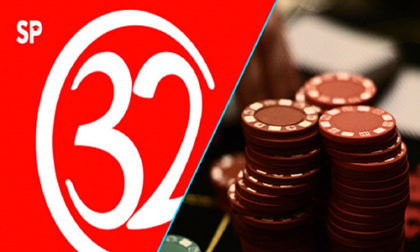UKGC Slaps £2M Fine on 32Red for Consumer-Protection Violations
The United Kingdom Gambling Commission (UKGC) announced today the latest in a long-running series of consumer-protection and problem-gambling violations, hitting 32Red with a £2 million fine for an ongoing series of violations involving a single problem gambler who was allowed to deposit £758,000 on the site between November 2014 and April 2017.
 Per a UKGC statement, 32Red failed to act on at least 22 separate incidents that should have indicated to 32Red that the unnamed individual was a problem gambler. Instead of determining whether the customer had the means to gamble at such stakes, conducting social-responsibility or money-laundering checks, 32Red merely offered deposit bonuses designed to induce the addictive gambler into additional deposits.
Per a UKGC statement, 32Red failed to act on at least 22 separate incidents that should have indicated to 32Red that the unnamed individual was a problem gambler. Instead of determining whether the customer had the means to gamble at such stakes, conducting social-responsibility or money-laundering checks, 32Red merely offered deposit bonuses designed to induce the addictive gambler into additional deposits.
According to the details of a regulatory settlement already agreed to by 32Red, the penalty package consists of:
- £709,046 divestment of the financial gain (to be returned to the problem gambler);
- £1.3million payment in lieu of a financial penalty, which we would otherwise impose for breaches of a licence condition in accordance with our Statement of principles for determining financial penalties. The money will be spent on accelerating delivery of the National Responsible Gambling Strategy;
- Payment of £15,000 towards our investigative costs;
- Improvements to policy, procedure and risk management.
The period of time covered by the investigation and subsequent fine were before the acquisition of the 32Red family of brands (including RoxyPalace and others) by Kindred Group Plc. last June. However, the period of time covered by the investigation also does not include the period from 2011, when the unnamed punter joined the site, to November of 2014, when 32Red first received United Kingdom licensing.
The Gambling Commission’s investigation revealed that the unnamed gambler was wagering far beyond his actual means. The addicted punter turned out to make only an average of £2,150 a month, yet was making average monthly deposits of about £45,000.
There were other problem indicators that 32Red also ignored. One was a huge win that the unnamed gambler quickly punted away. From the attached findings:
A review of the account was only performed in January 2017, as a result of unusual play suggestive of possible problem gambling (a seven-figure win, instantly replayed). The life time deposits (from November 2014) were now nearly £500,000. Following the review, a disclosure was made to the nominated officer and source of wealth requests were made of Customer A, but information was not received for a further 5 weeks despite continued play. The documentation supplied did not support the level of deposits but 32Red took no further action until the account was suspended in April 2017, by which life time deposits (from November 2014) were £758,000.
The findings also indicated that the problem gambler made repeated communications to 32Red, and those interactions formed the gist of the behavior that led to the large fine. Here’s where 32Red really screwed up:
From November 2014, there were 22 incidences where Customer A referred to issues or made complaints which could indicate problems with gambling. There had been many more prior to this too, which should have fed into a developing picture of the customer. The incidences should have led to a customer interaction, but instead they were each met with a bonus being applied to the account. There were three distinct types of contact:
poor performance – eg “I have had enough of the site not performing well”
spending too much – eg “I’ve deposited quite a sum”
frustrated, fed up, chasing losses – eg “all I seem to do is deposit”.
Richard Watson, the UKGC’s Executive Director, said: “Instead of checking on the welfare of a customer displaying problem gambling behaviour, 32Red encouraged the customer to gamble more – this is the exact opposite of what they are supposed to be doing.
“Operators must take action when they spot signs of problem gambling and should be carefully reviewing all the customers they are having a high level of contact with.
“Protecting consumers from gambling-related harm is a priority for us and where we see operators failing in their responsibility to keep their customers safe we will take tough action.”




















COMMENTS